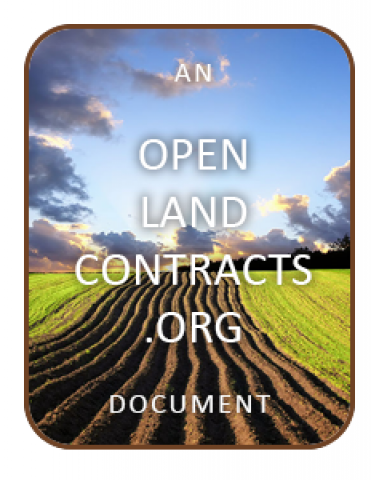This report is a mid-term evaluation (MTE) of the Forest and Farm Facility (FFF), one of the first “umbrella programmes” within the Food and Agriculture Organization of the United Nations (FAO). In support of the programme vision, “Smallholders, communities and indigenous peoples’ organizations…
Los bosques y los árboles respaldan la agricultura sostenible. Estabilizan los suelos y el clima, regulan los flujos de agua, ofrecen sombra y refugio y proporcionan un hábitat a los polinizadores y los depredadores naturales de plagas agrícolas. Asimismo, contribuyen a la seguridad alimentaria…
Desde las décadas de 1970 y 1980, la forestería comunitaria ha ido adquiriendo cada vez más popularidad, a partir del concepto de que las comunidades locales, cuando se les conceden suficientes derechos de propiedad sobre los bosques colectivos locales, pueden organizarse de forma autónoma y…
This is a Social Agreement posted on <a href="https://www.openlandcontracts.org:443/">OpenLandContracts.org</a>. It lists Timber (Wood) as the primary resource(s)
Agriculture and mining are increasingly driving deforestation in Liberia, as trees are cleared to make way for plantations and mines. The environmental impacts of deforestation are devastating, but the people and communities who live in the forest are also at risk.
Industries like farming…
This Act adds a new Chapter to the Liberian Code to create the Liberian Land Authority. The Authority shall be a body corporate and shall be governed by a Commission. The primary mandate of the Authority is to develop policies on a continuous basis, undertake actions and implement programs for…
Las inversiones en la agricultura han demostrado ser uno de los medios más eficaces para reducir la pobreza en las zonas rurales de los países en desarrollo. Obrar de conformidad con las Directrices voluntarias sobre la gobernanza responsable de la tenencia de la tierra, la pesca y los bosques…
Supporting Implementation of the Voluntary Guidelines on the Responsible Governance of Tenure of Land, Fisheries and Forests (VGGTs) is a programme that provides countries with a framework for best practices in tenurerelated policies, laws, regulations, strategies and practices. Its Phase 1 was…
This study assesses the jurisdictional, procedural and remedial aspects of the grievance mechanisms that are used in land disputes in Sierra Leone. It helps to better understand the types and effectiveness of non-judicial grievance mechanisms in the country. It further proposes some options for…
This is a Social Agreement posted on <a href="https://www.openlandcontracts.org:443/">OpenLandContracts.org</a>. It lists Oil palm or palm oils as the primary resource(s)…
This is a Social Agreement posted on <a href="https://www.openlandcontracts.org:443/">OpenLandContracts.org</a>. It lists Timber (Wood) as the primary resource(s)
This is a Social Agreement posted on <a href="https://www.openlandcontracts.org:443/">OpenLandContracts.org</a>. It lists Timber (Wood) as the primary resource(s)


